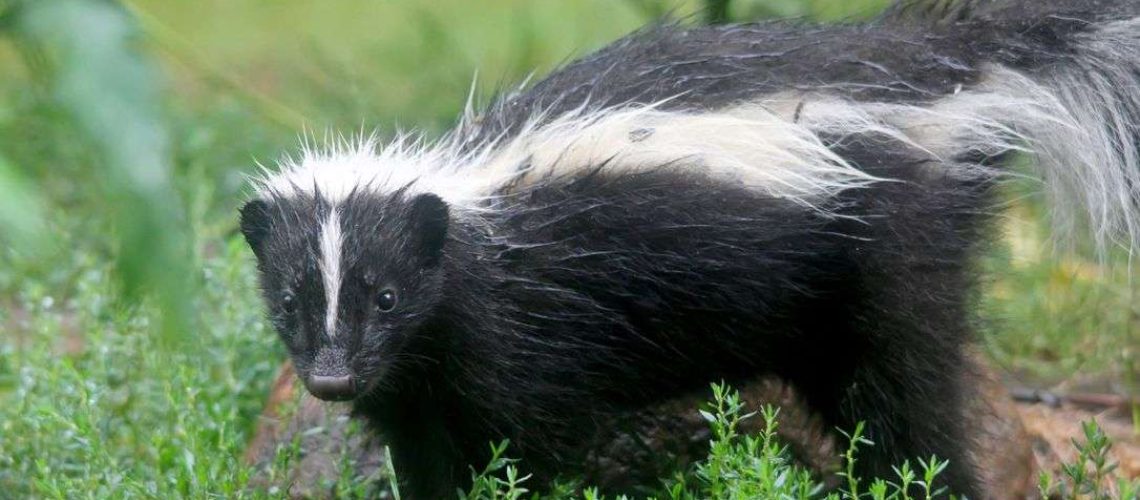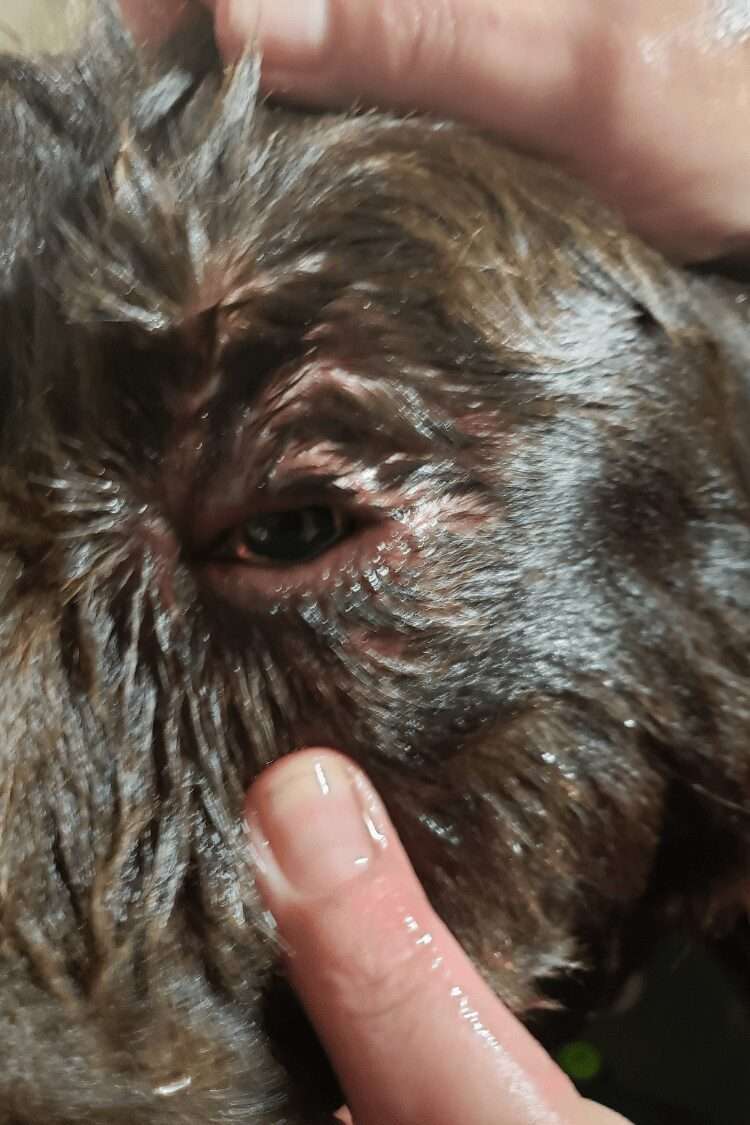Are you tired of your furry friend coming home with that unmistakable skunk smell? Well, fret no more! In this article, we'll explore the valuable tips and tricks to help your cat overcome their skunk trouble. Understanding this topic is essential because not only will it save you from enduring the pungent odor, but it will also ensure the well-being and happiness of your beloved pet. By delving into this subject, you'll discover simple yet effective ways to handle skunk encounters and keep your cat safe from potential dangers. So, let's dive right in and equip ourselves with the knowledge needed to tackle skunk trouble head-on!
Key Takeaways:
- Skunk encounters can be dangerous for cats and may cause health issues.
- Preventing skunk trouble involves keeping your cat indoors or supervised when outside.
- If your cat gets sprayed by a skunk, it is important to act quickly to minimize the odor and potential harm.
- Using home remedies like tomato juice or vinegar may help reduce the skunk smell on your cat.
- Seeking veterinary assistance is recommended if your cat shows signs of distress or if the skunk encounter results in injuries.
What is Skunk Trouble?
Understanding Skunks
Skunks are small, furry animals known for their distinct black and white stripes. They have a unique defense mechanism - when they feel threatened, they can spray a strong-smelling liquid from their anal glands. This spray has a pungent odor that can be difficult to remove. Skunk encounters can be troublesome for both humans and pets, including cats.
The Dangers of Skunk Spray
When a skunk sprays its foul-smelling liquid, it can cause several problems for cats. The smell is not only unpleasant but can also irritate the eyes, nose, and throat of your feline friend. Cats may experience temporary blindness or respiratory issues if they come into contact with skunk spray. Additionally, the strong odor can cause stress and anxiety in cats, leading to behavioral changes.
How Skunks Can Cause Problems for Cats
Nighttime Encounters
Skunks are primarily nocturnal creatures, which means they are most active during the night. Cats are also known to roam outdoors at night. This increases the chances of a cat coming across a skunk while exploring their surroundings. Since skunks usually avoid confrontation unless provoked, it's important to keep your cat away from them to prevent any potential problems.
Territorial Disputes
Skunks are territorial animals and may mark their territory by spraying around it. If your cat unknowingly enters an area claimed by a skunk, it could trigger an aggressive response from the skunk. This could lead to a dangerous encounter where your cat gets sprayed or injured.
Signs Your Cat Has Encountered a Skunk
If your cat has had an encounter with a skunk, there are some signs you can look out for:
- Strong, pungent odor: Skunk spray has a distinct smell that is difficult to miss. If your cat smells overwhelmingly like skunk, it's a clear indication of an encounter.
- Irritated eyes and nose: Your cat may exhibit signs of discomfort such as excessive blinking or sneezing due to the irritating nature of skunk spray.
- Behavioral changes: Cats may become agitated, anxious, or restless after encountering a skunk. They may groom excessively or try to rub off the smell.
The Importance of Acting Quickly When Your Cat is Sprayed by a Skunk
If your cat gets sprayed by a skunk, it's crucial to take immediate action. The longer the skunk odor lingers on your cat, the more difficult it becomes to remove. Acting quickly will minimize the discomfort and potential health issues for your feline friend.
Preventing Further Spread
Skunk spray can easily transfer from your cat's fur to other surfaces in your home. To prevent further spread of the odor, isolate your cat in a separate room or area until you can address the issue.
Reducing Discomfort
Skunk spray can cause irritation and discomfort for cats. Rinse their eyes gently with water if they are irritated and avoid using any harsh chemicals or substances on their fur without professional guidance.
Safe and Effective Home Remedies to Remove Skunk Odor from a Cat
If your cat has been sprayed by a skunk, there are some safe and effective home remedies you can try to remove the odor:
1. Tomato juice bath: Many people swear by giving their skunk-sprayed pets a tomato juice bath. The acidity in tomato juice helps neutralize the skunk odor. Simply pour tomato juice over your cat's fur and let it sit for a few minutes before rinsing thoroughly with water.
2. Baking soda and hydrogen peroxide mixture: Create a mixture of 1 quart of 3% hydrogen peroxide, ¼ cup of baking soda, and 1 teaspoon of liquid dish soap. Apply this mixture to your cat's fur, avoiding the eyes and mouth. Let it sit for a few minutes before rinsing off completely.
3. Commercial skunk odor removal products: There are also specially formulated skunk odor removal products available in pet stores or online. Follow the instructions provided on the product for safe and effective use.
Remember to always consult with your veterinarian before using any home remedies or commercial products on your cat to ensure their safety and well-being.
When to Seek Professional Help for Your Cat After a Skunk Encounter
While home remedies can be effective in removing skunk odor from your cat, there are certain situations where it is best to seek professional help:
- If your cat shows signs of respiratory distress or other health issues after being sprayed by a skunk.
- If the skunk spray has come into contact with your cat's eyes or mouth.
- If the skunk spray has caused severe skin irritation or burns on your cat's fur.
- If you have tried multiple home remedies without success in removing the skunk odor.
In these cases, it is important to contact your veterinarian for guidance and assistance. They will be able to provide appropriate medical treatment and advice tailored to your cat's specific needs.
Tips to Prevent Future Skunk Troubles for Your Cat
Taking preventive measures can help reduce the chances of future skunk encounters for your cat:
- Keep cats indoors at night: Since skunks are primarily active during the night, keeping your cat indoors during those hours can minimize their chances of encountering a skunk.
- Secure garbage cans: Skunks are attracted to food sources, so make sure your garbage cans are securely sealed to prevent skunks from being lured into your property.
- Remove potential hiding spots: Skunks often seek shelter in bushes, woodpiles, or under decks. Regularly inspect and remove such hiding spots to discourage skunks from residing near your home.
- Install motion-activated lights or sprinklers: Skunks are wary of sudden movements and bright lights. Installing motion-activated lights or sprinkler systems can deter skunks from approaching your property.
By implementing these preventive measures, you can help protect your cat from future skunk troubles and ensure their safety and well-being.
In conclusion, if your cat encounters a skunk, it is important to act calmly and quickly. By following the steps mentioned earlier, you can help minimize the effects of a skunk encounter on your cat's health and well-being.
Is skunk smell harmful to cats?
She also advised pet owners to ensure that their pets do not escape on the way to the bathtub, as the oil that causes the odor will adhere to anything it comes into contact with. Skunk spray does not contain any toxins, so it will not harm your pet. However, it may make them uncomfortable.
What repels skunks but not cats?
Citrus, ammonia, mothballs, and predator urine (such as dog or coyote urine) are effective scents for repelling skunks. However, if you choose to use mothballs or ammonia-soaked cotton balls, it is important to keep them out of reach of children.
How long does skunk smell stay on a cat?
The scent of skunk spray, although used as a defense mechanism, is more unpleasant than harmful. The strong and offensive odor can linger for a duration of three weeks, and the longer it remains, the more difficult it becomes to eliminate. Taking prompt action with the following suggestions will guarantee your success in getting rid of skunk odor.
How do you get skunk smell out of pet fur?
To eliminate the odor of skunk from dogs, combine one quart of hydrogen peroxide (3% concentration) with 1/4 cup of baking soda and 1-2 teaspoons of dish soap. Apply the mixture to your dog's fur, being careful to avoid their eyes and mouth, and leave it on for 5-10 minutes before thoroughly rinsing with water. Repeat if necessary. (Date: April 26, 2023)
Will kitty litter absorb skunk smell?
Kitty litter and other fine-particle substances can absorb the smell of a skunk encounter. It is recommended to bury the materials to get rid of the scent, as soil particles are believed to absorb the skunk odor.
Can skunks give cats diseases?
Skunks have the ability to transmit the same diseases that can affect humans to pets. They can also spread a disease called distemper, which specifically affects dogs and cats but not humans. Pets can become infected with this condition if they come into direct contact with a skunk's urine.

















